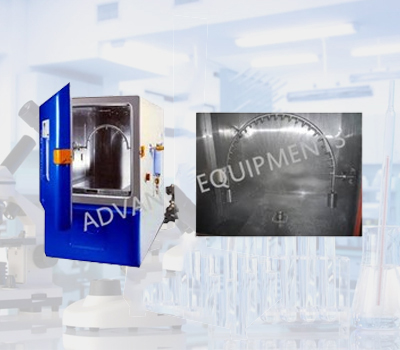



Rain chambers, also known as water spray chambers, are specialized testing equipment used in plastic testing laboratories to test the resistance of materials to water and rain. Some common applications of rain chambers include:
Rain chambers are used to test the resistance of materials to water and rain in various environments. This can help determine the suitability of a product for use in outdoor environments where exposure to water and rain is common.
Rain chambers can be used for quality control purposes to ensure that products being produced meet specific standards for water and rain resistance. By subjecting samples of products to a controlled environment in a rain chamber, manufacturers can ensure that their products meet the required water and rain resistance standards.
Researchers can use rain chambers to study the behavior of various materials under different environmental conditions. This can help in the development of new products with improved water and rain resistance properties.
Rain chambers can be used in product development to test the performance of various products in real-world environments. By subjecting products to a controlled environment in a rain chamber, designers and engineers can determine the suitability of a product for use in various applications and environments.
Certification testing: Rain chambers are also used for certification testing in various industries, such as the automotive, aerospace, and military industries. Products must meet specific water and rain resistance standards to receive certification and be approved for use in certain applications.
Overall, rain chambers are essential tools for testing the resistance of various products and materials to water and rain, and for ensuring that products meet specific standards for water and rain resistance.

As per IS 10322 / IEC 60529
IPX3, IPX4, IPX5, IPX6